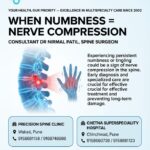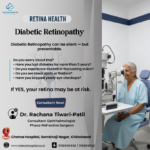Unfortunately, digestive issues are among the most common yet most ignored health problems. Many people tend to dismiss symptoms like acidity, bloating, or mild stomach pain as something “normal.” But these could actually be the early warning signs of a digestive disorder that needs medical attention.
Let’s understand the key symptoms that shouldn’t be ignored and when it’s time to consult a specialist.
1. Frequent Bloating and Gas
Bloating or excessive gas after meals can feel uncomfortable — but if it happens regularly, it’s a red flag.
Causes may include:
Indigestion or slow digestion
Lactose intolerance or food allergies
Irritable Bowel Syndrome (IBS)
Gallbladder issues or enzyme deficiency
If bloating is accompanied by abdominal pain, heaviness, or excessive belching, it’s best to get a check-up. Persistent bloating could indicate an imbalance in your gut bacteria or a structural issue in your digestive tract.
Tip: Keep a food diary to identify trigger foods and eat smaller, more frequent meals to reduce discomfort.
2. Persistent Abdominal Pain or Cramps
Occasional stomach pain can be due to overeating or mild acidity, but constant or recurring pain shouldn’t be ignored.
Common causes include:
Gallstones or gallbladder inflammation
Gastritis or stomach ulcers
Appendicitis
Pancreatitis
Intestinal obstruction or hernia
Abdominal pain that becomes severe, shifts in location, or is accompanied by fever, nausea, or vomiting could indicate a medical emergency.
When to consult a doctor:
If pain lasts more than a few days or interferes with your daily activities, see a general surgeon or gastro specialist immediately.
3. Heartburn and Acid Reflux
That burning sensation in your chest after a meal might seem harmless, but frequent heartburn or regurgitation can indicate Gastroesophageal Reflux Disease (GERD).
GERD occurs when stomach acid repeatedly flows back into the esophagus, irritating its lining. Over time, this can lead to ulcers or even pre-cancerous changes.
Symptoms include:
Burning in the chest (especially after meals)
Sour taste in mouth
Difficulty swallowing
Persistent cough or throat irritation
Prevention tips:
Avoid spicy, oily, and late-night meals
Eat smaller portions
Sleep with your head elevated
Maintain a healthy weight
If you experience heartburn more than twice a week, it’s time to see a doctor.
4. Changes in Bowel Habits
Your bowel habits are a direct reflection of your digestive health. Changes in frequency, consistency, or color of stool can indicate a digestive disorder.
Watch out for:
Constipation: Straining, hard stools, or fewer than three bowel movements a week
Diarrhea: Loose stools lasting more than 2–3 days
Blood in stool: Possible sign of hemorrhoids, fissure, or intestinal inflammation
Black or tarry stool: May indicate internal bleeding or ulcer
Long-term constipation can lead to piles (hemorrhoids), fissures, or even rectal prolapse.
On the other hand, chronic diarrhea could signal infections, inflammatory bowel disease, or lactose intolerance.
Remember: A healthy bowel movement should be regular, soft, and pain-free.
5. Unexplained Weight Loss
If you’re losing weight without any change in diet or exercise, your digestive system might not be absorbing nutrients properly.
Possible causes include:
Malabsorption syndromes
Peptic ulcers
Thyroid disorders
Chronic infections
Digestive system cancers
Unintentional weight loss accompanied by weakness, loss of appetite, or fatigue requires immediate medical attention.
Tip: Track your weight regularly. If you lose more than 5% of your body weight in a month without trying, consult a doctor.
6. Loss of Appetite or Nausea
Loss of interest in food or persistent nausea could indicate several digestive problems such as:
Gastritis
Liver or gallbladder disorders
Ulcers
Intestinal infections
It can also result from stress, medications, or even hormonal imbalances.
However, when these symptoms persist for weeks, a thorough examination is essential.
When to act:
If nausea is accompanied by vomiting, fever, or abdominal swelling, it could point to a more serious underlying issue.
7. Fatigue and Nutrient Deficiency
When your digestive system isn’t absorbing nutrients effectively, your body becomes weak and fatigued.
Deficiency of iron, vitamin B12, or protein due to malabsorption can cause tiredness, hair loss, or pale skin.
Common digestive causes of fatigue:
Celiac disease
Chronic gastritis
Pancreatic insufficiency
Liver disease
Don’t just rely on supplements — addressing the root cause is crucial.
8. Blood in Vomit or Stool
One of the most alarming signs of a digestive disorder is visible blood — whether in vomit (hematemesis) or stool (rectal bleeding).
This can result from:
Peptic ulcers
Gastrointestinal bleeding
Fissures or hemorrhoids
Colon polyps or cancer
Even a small amount of blood should not be ignored.
Immediate evaluation by a general surgeon can help determine the source and start treatment early.
9. Jaundice (Yellowing of Eyes and Skin)
When your liver isn’t functioning properly, bilirubin (a yellow pigment) builds up in your body, leading to jaundice.
It may be linked to:
Hepatitis or liver infection
Gallstones blocking bile ducts
Alcohol-related liver disease
Pancreatic disorders
If you notice yellow eyes, dark urine, or pale stools, consult a doctor immediately.
Early diagnosis can prevent complications like liver failure.
10. Frequent Indigestion or Acidity
Many people experience acidity after overeating or consuming spicy food, but when it becomes a daily issue, it may indicate chronic gastritis or an ulcer.
Symptoms include:
Burning sensation in upper abdomen
Nausea after eating
Feeling full quickly
Sour burps or bad breath
Lifestyle tips:
Eat slowly and chew food properly
Avoid lying down immediately after eating
Limit caffeine, alcohol, and carbonated drinks
Manage stress levels through exercise or meditation
When Should You See a Doctor?
You should consult a general surgeon or gastro specialist if you experience:
Persistent abdominal pain or bloating
Blood in stool or vomit
Frequent heartburn or reflux
Unexplained weight loss
Chronic constipation or diarrhea
Difficulty swallowing
Ignoring these symptoms can allow minor issues to develop into serious conditions requiring surgery or long-term medication.
Diagnosis of Digestive Disorders
At Chetna Hospital, Chinchwad, comprehensive diagnostic tools are available to evaluate digestive issues accurately, including:
Ultrasound (USG Abdomen + Pelvis) – To detect gallstones, hernias, or liver disorders
Endoscopy / Colonoscopy – To visualize the digestive tract
Blood Tests & Liver Function Tests (LFT) – To assess organ health
CT Scan / MRI – For advanced imaging if needed
A correct diagnosis helps plan an effective, personalized treatment strategy.
Treatment Options
Depending on the diagnosis, treatment may include:
Lifestyle modifications: Healthy diet, regular exercise, hydration
Medications: Antacids, enzyme supplements, antibiotics, or probiotics
Minimally invasive surgery: For gallstones, appendicitis, hernia, or piles
Laser treatments: For fissures, fistulas, or varicose veins
At Chetna Hospital, modern laparoscopic and laser-assisted procedures ensure minimal pain, faster recovery, and smaller scars.
How to Maintain a Healthy Digestive System
A strong digestive system is key to long-term wellness. Follow these simple habits:
Eat a balanced diet: Include fruits, vegetables, whole grains, and probiotics.
Stay hydrated: Drink 8–10 glasses of water daily.
Avoid overeating: Eat smaller, frequent meals instead.
Exercise regularly: Keeps your gut active and prevents constipation.
Avoid smoking and alcohol: They irritate your digestive lining.
Manage stress: Mental health directly affects your gut health.
Sleep well: Poor sleep weakens digestion and immunity.
Regular health check-ups: Detect problems early and prevent complications.
Conclusion
Your digestive system communicates with you — through symptoms like bloating, pain, heartburn, or fatigue.
Ignoring these signs can lead to chronic problems or even require surgery later.
At Chetna Hospital, Sambhajinagar, Chinchwad, Dr. Dhananjay Patil, a skilled General Surgeon, offers advanced evaluation and treatment for digestive disorders, using minimally invasive and patient-friendly approaches.
🩺 Remember:
A healthy gut means a healthy life. Don’t ignore what your stomach is telling you — listen early, act early, and live better.













